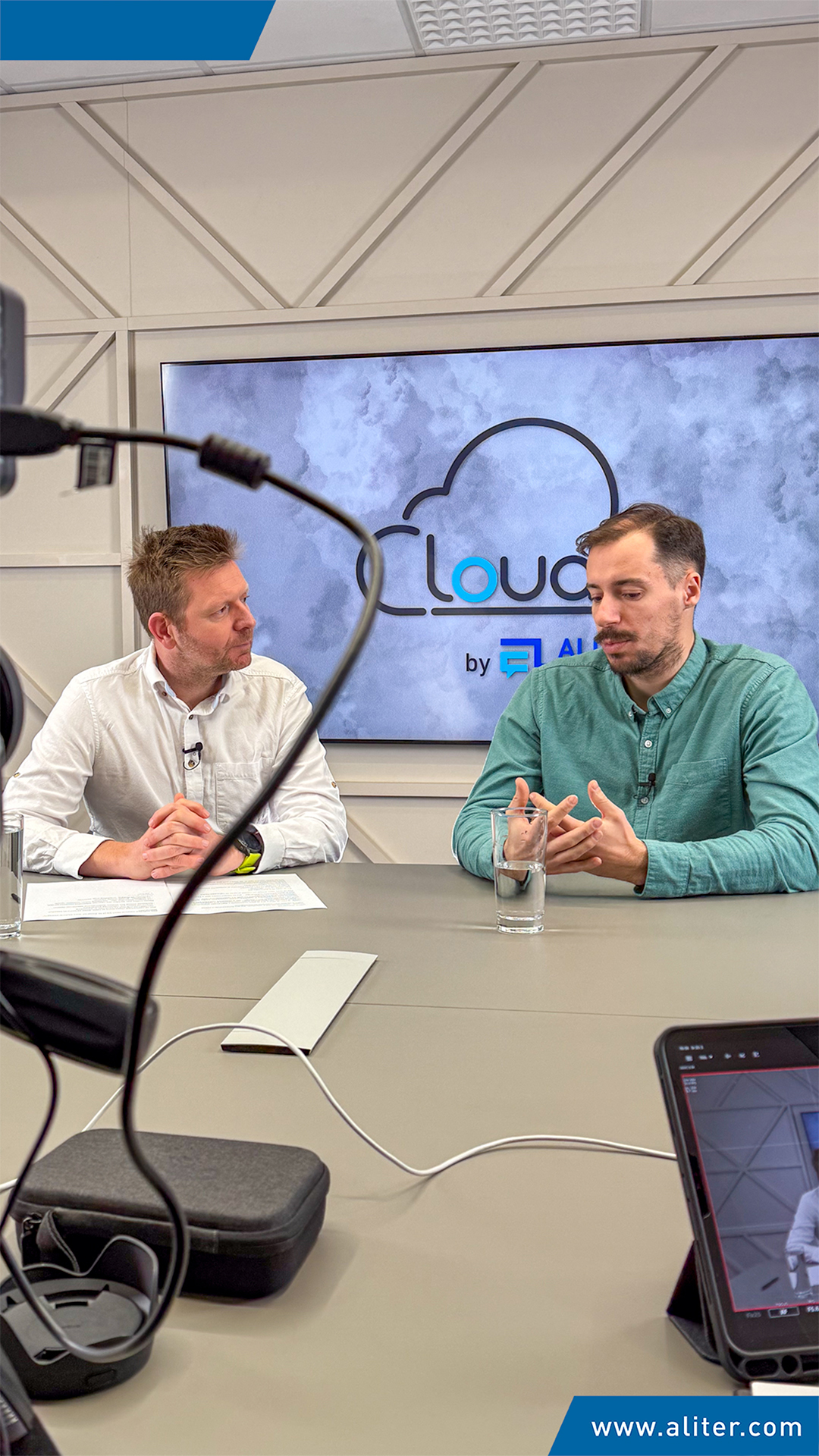CLOUDY podcast | #13 What is SEO and who is it for?
- News
What is SEO?
SEO = Search Engine Optimization.
What we want to achieve or what is the marketing result of SEO is to get traffic from organic search results. Whether on Google, which is the most famous search engine in our region, or on other browsers such as Yahoo and Bing.
The essence is to get to the top positions and get traffic from organic search results. When considering search results, Google tries to satisfy the customer. So, what the customer wants, it will offer him. Google is looking for the most relevant and best content for the given user in a given situation.
This means that behind all this is user behavior, so Google does not want to throw in content that is better for him, but content that will satisfy the need of the user who will return to Google for further queries.
Example: so that when I search for men's shirts and see men's t-shirts in the search results, I don't come back to Google, but search elsewhere.
What is the difference between PPC advertising, (PPC = pay per click) advertising, and SEO?
In search, both SEO and PPC come into contact. Google gives the first search positions to paid ones, that is, in PPC mode. This means that the user buys that click.
For every click that a user clicks on a given ad, someone pays for it. And then, after these paid links, organic search results come, and that is actually SEO.
The difference is that with PPC, I pay for the momentary and current performance and as soon as I turn off the ad, the ad stops showing, whereas organic search results have a long-term nature. SEO is a long-term race.
What does good SEO have to include and how is it set up?
SEO is not a one-time activity. It is continuous optimization of the site.
It consists of three parts and the first part is technical, which is more related to developers, programming and is a certain list of standards that must be taken into account for a website such as mobile first, responsiveness, website loading speed, user behavior, indexing... This first part can be a one-time thing.
The second part is content. This is the more widespread continuous activity - these are keywords, the content coverage. This means that we cover the content for terms that users search for.
The third part of SEO is domain rating or the value of the website, which confirms the quality of the website. Domain rating is obtained by backlinks, brand strength in search or length of operation (how long the site has been out).
How often is it good to change or adjust SEO?
From a technical point of view, you need to regularly check whether Google has released any new updates, changes...
One of the things that will definitely await us in the coming years or months is the adaptation to AI, to chat GPT and the gradual application of AI to search.
The second part is the content - continuous. Example: If I name a thing today that it is a water glass, it may not be the same in the future. The trend may change, user behavior may change, the whole concept of how users think may change and this includes word coverage. If today I am looking for a glass, but tomorrow I will be looking for a container and I have been focusing on the word cup the whole time in terms of content, but I did not focus on the word container, then automatically if the search for the word container increases, we have to adapt to that.
I need to regularly analyze and monitor keywords, how they are searched, what the average monthly searches are, and monitor my customers, my target group, how they behave.

Everything has its pros and cons. What are the disadvantages of SEO?
The disadvantage of SEO is that the effect is not visible immediately. This means that if I do activities and start with SEO, the start-up is not as immediate as in PPC. In PPC, it can easily take a month. Covering competitive keywords in highly competitive segments can take half a year, a year. In some cases, this seems very daunting.
However, the advantage of SEO is that the investment is reflected and lasts a long time. Those word positions are then maintained.
The higher I am in the search engine, the better my SEO is set up?
That is the goal. The percentage of clicks from search increases rapidly with position. The vast majority of clicks occur in the first to fourth position, and with each additional position, the click-through rate decreases rapidly.
Why not focus on SEO? Is there such a situation?
It is, of course. In the case if I run a business and my content/website is in such a market situation where people do not go to Google. An example is gastro. Furthermore, if I have a bad website, I cannot optimize it, I have technical problems that I cannot overcome at the moment, then I will devote myself to SEO in vain.
If there is no time and space for content optimization, or if I have an ordinary website, the so-called one-pager website, i.e. a website without subpages.
I have a good website, I have a good background and yet it doesn't work well for me, so where could the mistake be?
A common mistake occurs during website migration or when a website redesign is being done and its structure is changing. For example, the old URL address is not redirected to the new one, etc. or the structure of URL addresses is changing. The reason for failure can also be the lack of coverage of important keywords.
In Slovakia, for example, we have a bizarre situation: stroller vs. stroller in the children's segment. Stroller is an unwritten word, but 30% of the Slovak population still searches for it in its unwritten form. This means that if I don't cover the word as both stroller and stroller, I'm actually losing 30% of the market.
I have to remember that I'm not doing this for myself, but I'm doing it for people.
You can listen to the entire podcast on Spotify or watch it on YouTube.


